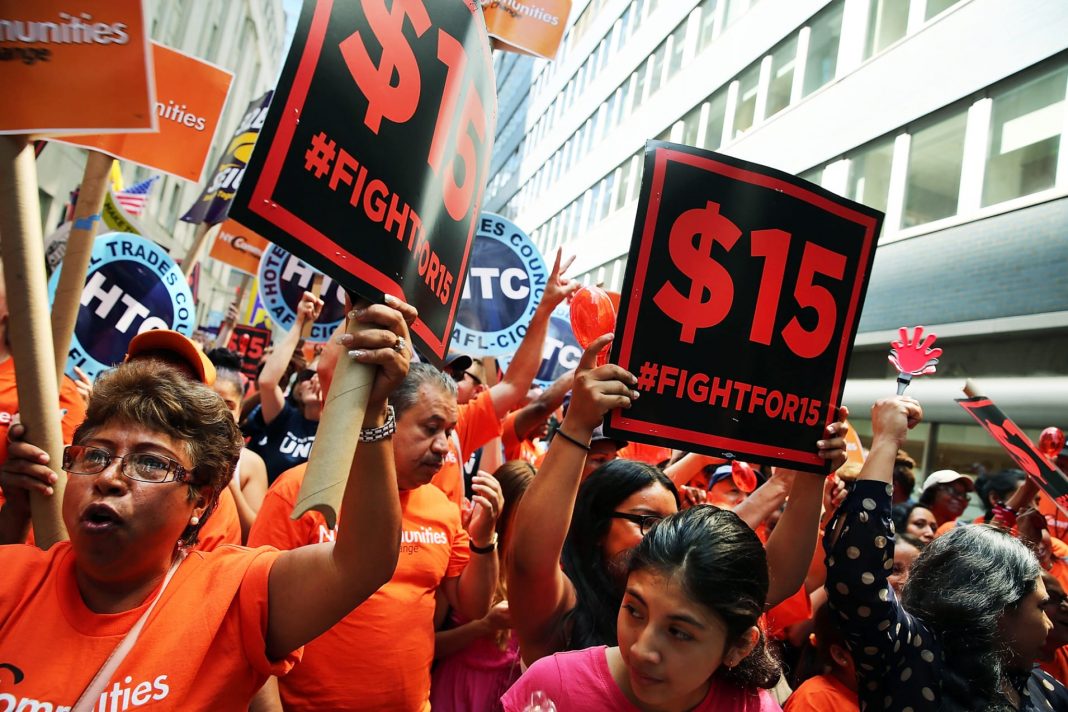Looking for another sign of a strong economy? Nearly half of states in the U.S. just raised their minimum wage, and most small business owners reacted with a shrug. In the latest CNBC|SurveyMonkey Small Business Survey for the first quarter 2020, small business owners across the country report sustained optimism at the start of 2020, and only a minority report a negative business impact resulting from the increased minimum wages.
In fact, in this quarter’s survey, 57% of all small business owners say these minimum wage increases will have no impact at all on their business in 2020, indicating that they can absorb the cost of the wage increase, sustain any loss in profits and find ways to raise revenue to compensate for the increase on their balance sheets. Or perhaps many were always paying their workers above the minimum wage even before the change was made.
The risk of a wage increase is that it will be set too far above the hourly rate that employers can afford to pay their employees, forcing them to lay off workers if they can’t offset that cost in some other way. Small businesses typically have smaller profit margins and fewer ways to reallocate funds if their business model suddenly changes.
But with these wage increases coming at a time of near-record unemployment and steady national GDP growth — not to mention great confidence among small business owners, specifically — few small business owners are complaining about the wage boost. Perhaps more significantly, even those who expect a business impact thanks to the change only rarely say they will cut headcount as a result.
Just 8% of small business owners say they will be forced to lay off workers as a result of the higher minimum wage, while 14% say they will be forced to cut worker hours, 14% say the higher minimum wage will result in less revenue for their business and 22% say it will result in less profit for them.
State by state, results look the same
All told, 20 states raised their minimum wage on Jan. 1, while a 21st (New York) raised it on the last day of 2019 — another four, along with the District of Columbia, are set to raise their minimum wages later this year. The federal minimum wage stands at $7.25/hour, but each state is free to set their own floor at any level matching or exceeding the federal minimum.
The states implementing minimum wage increases in 2020 are a true cross-section of the country, representing every region and political leaning. Florida’s was the smallest dollar-value increase: a tiny 10-cent bump from $8.46 to $8.56. Washington state had the highest dollar-value increase — a $1.50 boost from $12 to $13.50 — tied with New Mexico’s increase from $7.50 to $9.






























